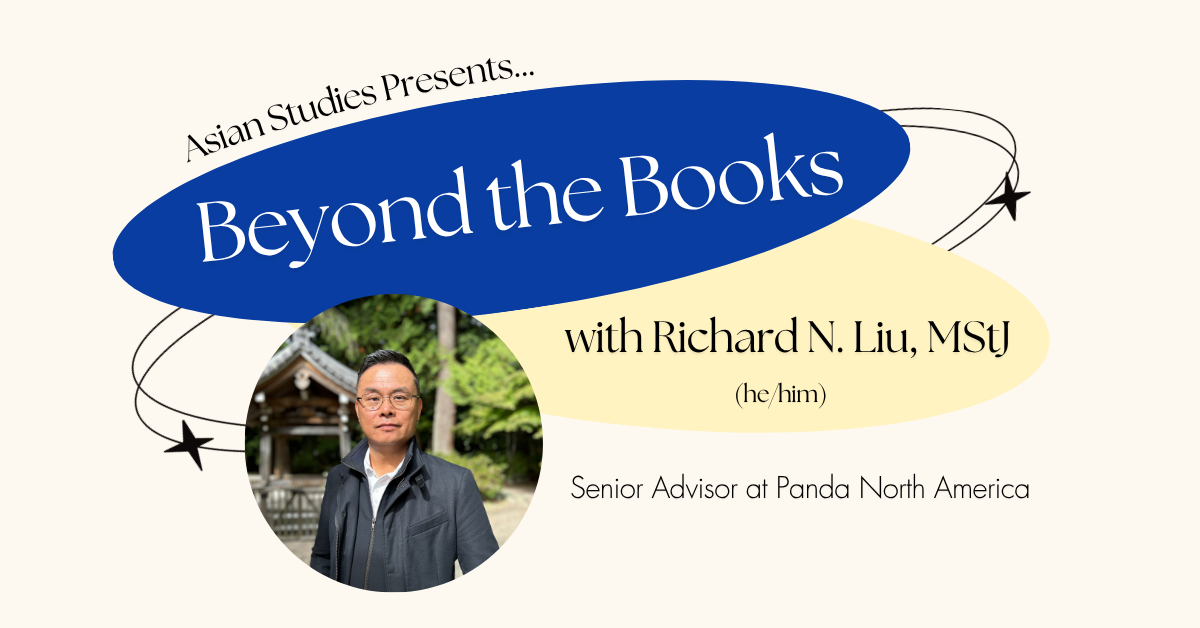

Summer 2018 students in the UBC Himalaya Program’s intensive Tibetan language and community-engaged learning course (ASTU 204F) visit Tsengdok Monastery in Vancouver.
The University of British Columbia’s Department of Asian Studies will expand its teaching of Tibetan Buddhist Studies and Tibetan Language, thanks to a $524,850 gift from the Khyentse Foundation with support from the Siddhartha’s Intent Society of Canada.
This donation funds the hiring of a post-doctoral research fellow or a visiting faculty member in Tibetan Buddhist Studies and a lecturer in Tibetan Language Studies. The funds will be administered over a five-year period.
“This is a major gift that puts UBC firmly on the path of re-establishing itself as a major centre for the study of Tibetan Buddhism and the Tibetan language. It contributes immeasurably to our strong focus on Asian religion in general and Buddhism in particular.”
Joshua Mostow
Professor and Acting Head, Department of Asian Studies
Khyentse Foundation is a non-profit organization founded in 2001 by Dzongsar Khyentse Rinpoche to support all traditions of Buddhist study and practice. Since 2001, the foundation has supported individuals and institutions in more than 30 countries and has directly affected the lives of people around the world. Khyentse Foundation activities include major text preservation and translation projects, support for traditional monastic colleges in Asia, a worldwide scholarship and awards program, academic development of Buddhist studies in major universities, training and development for Buddhist leaders and teachers, Buddhist education for children, support for individual study and retreats, and more. Since 2010, the foundation has been providing the Khyentse Foundation Award for Excellence in Buddhist Studies to undergraduate and graduate students in UBC’s Department of Asian Studies who are focusing on Buddhist Studies, especially expertise in the classical languages of Buddhist traditions.
“As interest in Buddhism grows in the West, it’s important to make sure that Buddhist Studies are conducted at the highest level of academic excellence, which is why we’re so happy to further our partnership with UBC with this gift. Such scholarly distinction once existed only in Asian monasteries and Dharma centers, and it is so heartening to see rigorous, authentic Buddhist scholarship flourishing in universities today,”
Cangioli Che
Khyentse Foundation Executive Director.
Academic studies are essential to the future of Buddhism. The Department of Asian Studies is already a global leader in the study of Chinese and Japanese Buddhism, making us an ideal location to invest in the teaching and research of Tibetan Buddhism and the Himalayan region. Khyentse Foundation’s funding provides capacity for the university to teach Tibetan Buddhist Studies alongside Tibetan language, enabling the university to more fully realize its potential as a global centre for Buddhist and Himalayan Studies. Website: www.asia.ubc.ca
Based in the Faculty of Arts’ Institute of Asian Research within the School of Public Policy and Global Affairs, UBC’s Himalaya Program brings together scholars who focus their research in regions of Asia with strong traditions of Tibetan Buddhism, and includes faculty in Anthropology, Art History, Asian Studies, Economics, Environmental Studies, and Medicine—all of whom care deeply about preserving and promoting the cultural traditions and well-being of those communities who have safe-guarded Buddhist teachings and practice over time. Khyentse Foundation’s gift provides us with the ability to teach the Tibetan Buddhist tradition within its own textual and historical context, and augments the Himalaya Program’s capacity to offer in-depth, multidisciplinary learning opportunities about the Tibetan and Himalayan worlds of the past, present and future. Website: http://himalaya.arts.ubc.ca/
The two positions will be named in recognition of the Khyentse Foundation’s generous gift and will launch in fall of 2018.
The Tibetan Buddhist studies position will teach two courses per year, including a large lecture format course. This capacity will serve to draw new students toward the study of Tibetan Buddhism, interests that could be further pursued through existing advanced courses, in conjunction with language training in Tibetan, and summer community-engaged experiences offered by the Himalaya Program.
In 2016, the Himalaya Program began piloting intensive summer programs in Tibetan and Nepali language and community-enaged learning. The program has enrolled over 25 students to study each language, and in 2018 each two-week intensive course carried 3 credits (ASTU 204E and ASTU 204F, offered between April 30-May11). These courses have been launched with the support of short-term annual grants from UBC’s Teaching and Learning Enhancement Fund and UBC’s Centre for Community Engaged Learning. The lecturer in Tibetan language studies will build on this foundation by offering 4 courses (12 credits) during the regular academic year. The Tibetan language program is expected to draw students from the Department of Asian Studies, across UBC and the wider community. Registration for classes is expected for the new school year 2018-19.


